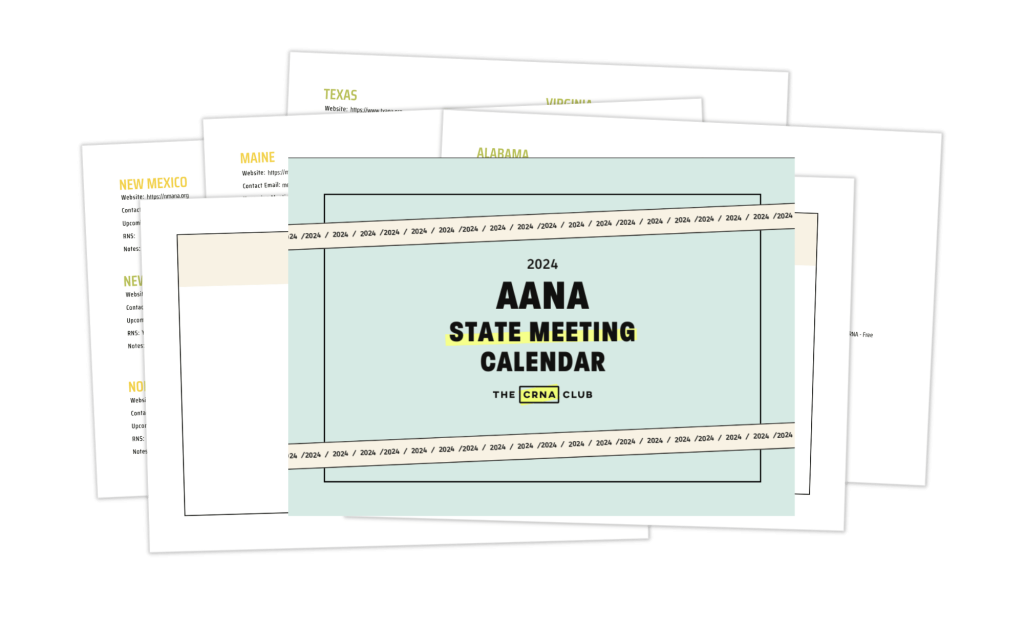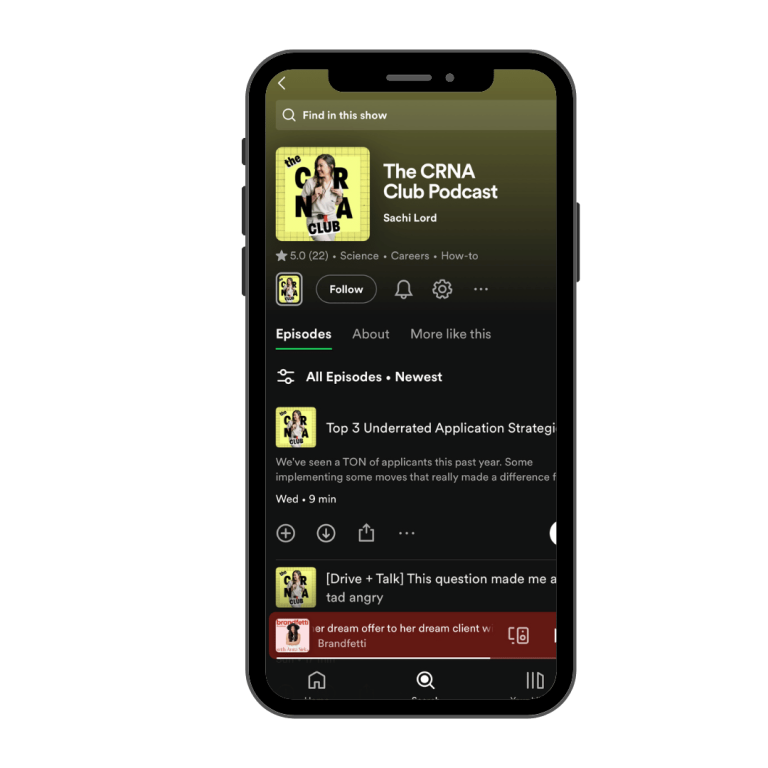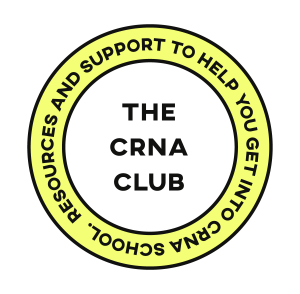PROFESSION OVERVIEW
What makes the CRNA profession different than AAs? Than anesthesiologists? What are the political issues we face, and why does it matter to you as an applicant? This is foundational but a must-watch.
NOTES ABOUT THE PROFESSION:
How do I find about issues facing the profession ?
Before you are able to articulate how you plan to contribute to the future of the CRNA profession, it might be helpful to identify some current issues facing the CRNA world. A great place to start would be the AANA website, there are lots of resources for you there, including past journal articles written by CRNAs.
- CRNA Fast Facts
- View Past Issues of the AANA Journal
- AANA Opt-Out State Sheet
- AANA Website – Check for National AANA Meeting dates + locations
- “Become a CRNA” AANA Sheet
Another great place to learn about current topics + trends would be AANA meetings, both state meetings and national meetings. If you can’t attend a meeting before your essay is due, find an upcoming meeting (search multiple state AANA meetings) and see if you can do some digging and find a conference agenda. That will tell you a LOT about the current topics CRNAs feel are worth discussing.
We highly recommend attending your AANA State Meeting. You’ll find CRNAs to shadow, mentor you, and there will likely be leaders in the profession and faculty there. Not only will you be able to network, you’ll learn SO much about the profession. This is one of the top things we recommend if you’re feeling like you’re having a hard time standing out, or lacking in the networking department. Some states only have 1-2 meetings a year, so please plan ahead.
Download the AANA State Meeting Calendar here.
*While we don’t update the calendar regularly, please use it to get direct links to each state’s AANA site. You can also just google “[state] AANA Meeting” and the state’s website should pop uop.
Things you should definitely look into:
What's the deal with Opt Out States?:
Opting out refers to a specific rule that affects hospitals and healthcare facilities when it comes to receiving money from the government for anesthesia services provided by a Certified Registered Nurse Anesthetist (CRNA). This money usually comes from programs like Medicare and Medicaid.
In the past, the government required CRNAs to be supervised by a doctor, any kind of doctor, in order for the hospital or facility to get reimbursed by the government. However, a rule implemented on November 13, 2001, changed things a bit. This new rule gave states the choice to “opt-out” or be “exempted” from the supervision requirement.
So, in states that have chosen to opt-out, hospitals and facilities that provide healthcare and anesthesia services through a CRNA can still receive money from the government without having to follow the supervision guidelines. This is especially helpful for many facilities in rural areas that need the funds to provide these important services without unnecessary oversight. By opting out of Medicare participation, CRNAs can fully utilize their education, training, and licensure. It recognizes their expertise in delivering safe and high-quality anesthesia care.
The CMS opt-out ruling of 2001 opened doors for CRNAs to provide care independently, and it’s a significant step forward for the profession. It showcases the important role they play in the healthcare system and expands their practice opportunities.
Crnas provide access in rural areas:
Rural hospitals across the country are facing closure at an alarming rate, with 145 shutting down since 2010, and 450 currently at risk. In these rural and critical access hospitals, CRNAs play a crucial role as they make up over 80% of anesthesia providers. Additionally, half of the rural hospitals in the US rely solely on CRNAs for obstetric care. Removing supervision requirements for CRNAs is a game-changer, as it will not only empower these healthcare professionals but also enhance access to care in rural communities. By leveraging the expertise of CRNAs, healthcare services can be sustained and improved, ensuring that vital medical assistance reaches those in need.
Crnas provide critical care for our veterans:
Did you know that around 23% of veteran households experience delays in securing health appointments and procedures? (AANA Source here – read me) Concerning, right? Back in 2016, the VA granted full practice authority to three out of four APRN specialties, unfortunately leaving out CRNAs. Throughout the pandemic, CRNAs were given full practice authority within the Veteran Health Administration (VHA), which was
a big step forward. One amazing advocate for autonomous practice in the VA is Jan Setnor, MSN, CRNA, who as of 2024 is the President of the AANA but is also a retired Colonel in the US Air Force. She has been actively championing for full practice authority in the military and supporting the expansion of autonomy within the VA. The Podcast Beyond the Mask Episode 244 is a great listen regarding this topic, with Jan Setnor, MSN, CRNA – AANA President.




